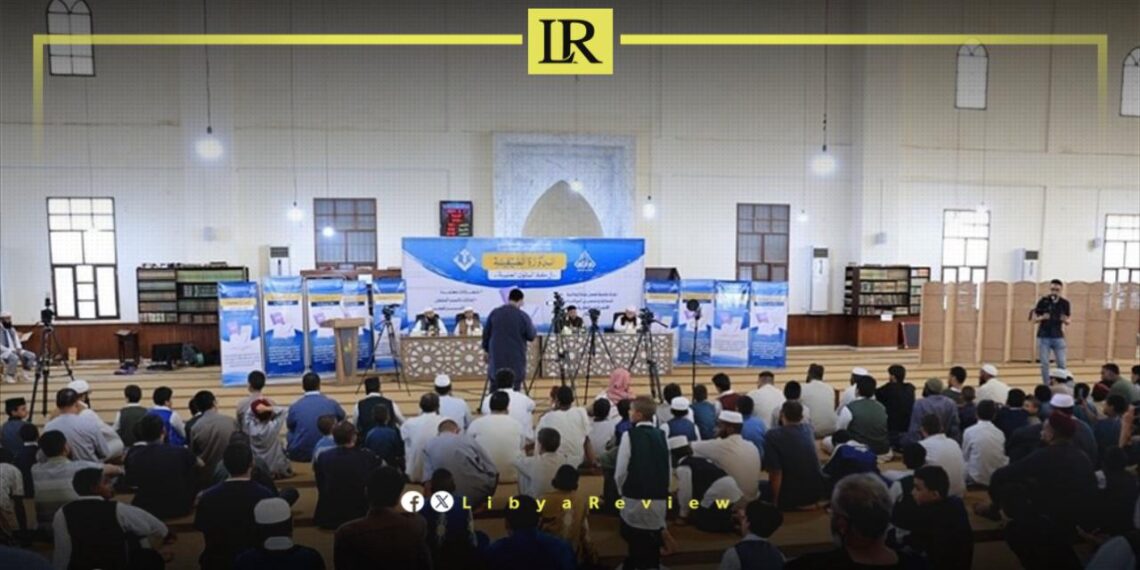The second edition of the summer course for memorizing scientific texts, organized by the Office of Awqaf and Islamic Affairs in Benghazi, began today, Saturday.
The opening ceremony took place at the “Bay’ah Al-Ridwan” Mosque in the Salmani area, attended by the President of the General Authority of Awqaf and Islamic Affairs, Atef Abdul Wahid Al-Abidi, along with members of the Supreme Fatwa Committee; Sheikh Abdulrazzaq Madi, Sheikh Abdulrahman Juwayli, Sheikh Ibrahim Belashhar, and the Head of the Office of Awqaf and Islamic Affairs in Benghazi, Sheikh Mustafa Laabidi.
In his speech, the President emphasized the importance of these courses in spreading Sharia knowledge and promoting moderation and balance. He also highlighted the necessity to counter negative cultural influences from social media, organizations, and suspicious satellite channels promoting conversion, atheism, and moral decay.
He encouraged intensified efforts in providing educational lessons and awareness lectures to protect the faith of younger generations, noting the significant impact of these efforts on the stability of society and the nation.
The President also expressed his gratitude to those organizing and implementing the course programs, praying for their reward.
The course includes five thousand students of various ages, distributed across eight mosques, and they will receive certified participation certificates from the Office of Awqaf and Islamic Affairs in Benghazi.
Libya has been in chaos since a NATO-backed uprising toppled longtime leader Muammar Gaddafi in 2011. The county has for years been split between rival administrations.
Libya’s economy, heavily reliant on oil, has suffered due to the ongoing conflict. The instability has led to fluctuations in oil production and prices, impacting the global oil market and Libya’s economy.
The conflict has led to a significant humanitarian crisis in Libya, with thousands of people killed, and many more displaced. Migrants and refugees using Libya as a transit point to Europe have also faced dire conditions.
The planned elections for December 2021 were delayed due to disagreements over election laws and the eligibility of certain candidates. This delay has raised concerns about the feasibility of a peaceful political transition.
Despite the ceasefire, security remains a significant concern with sporadic fighting and the presence of mercenaries and foreign fighters. The unification of the military and the removal of foreign forces are crucial challenges.


